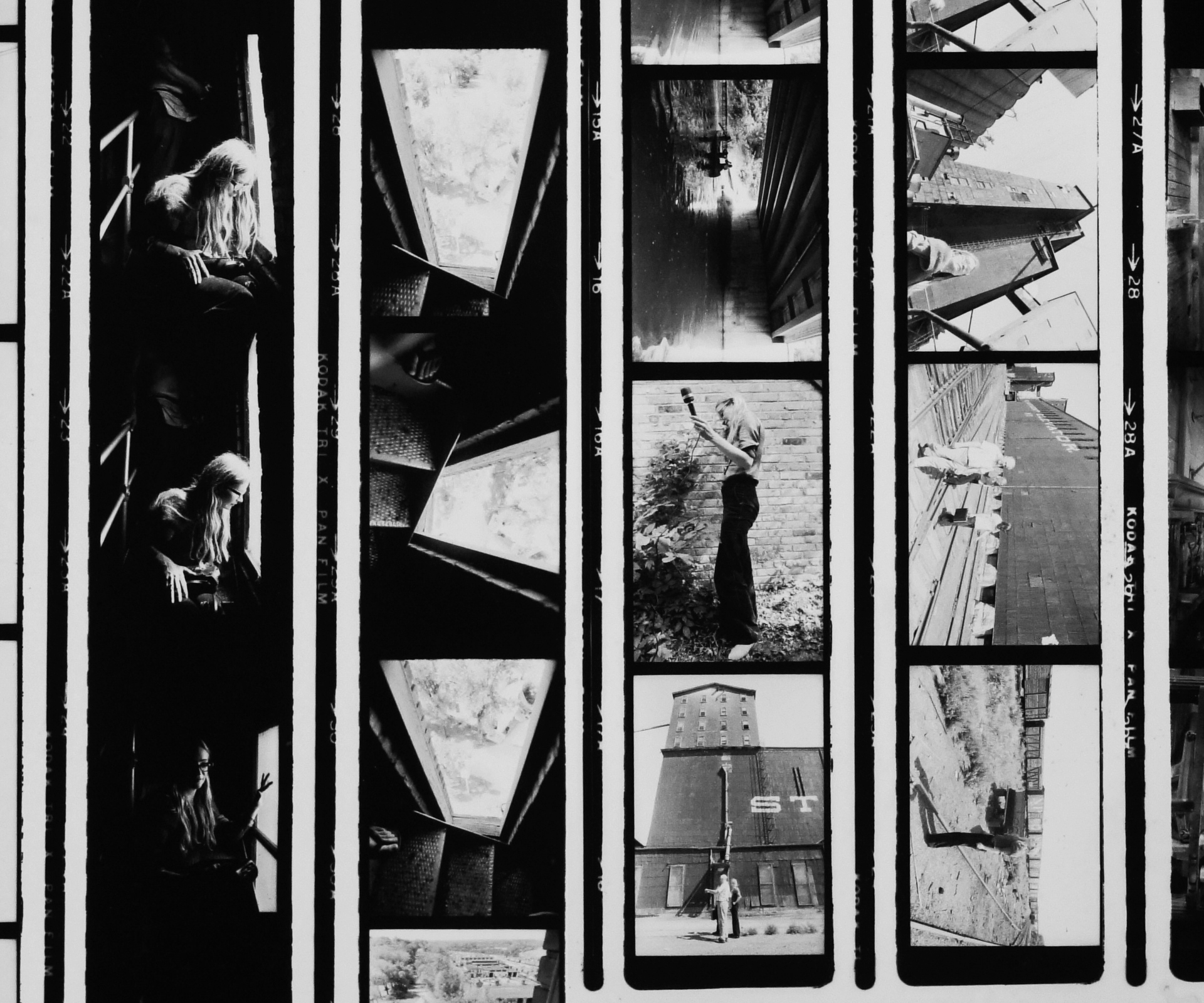
Blank Forms, the Maryanne Amacher Foundation, and the New York Public Library for the Performing Arts are thrilled to announce that the Maryanne Amacher archive has been processed and is now available for public research. Anyone can now request to view items from the collection at the Library for the Performing Arts at Lincoln Center.
Arranged shortly before her death in 2009, the Maryanne Amacher archive contains a wealth of knowledge and research potential that promises to be a source of interest and inspiration for generations of artists and scholars to come. Much of the material was assembled by Amacher herself, including a critical collection of documents that she felt to be her most important works and writings, as well as annotated drafts, project notes, performance materials, ephemera, audio versions dating to the early ‘60s, and more. In addition to notebooks, scores, sketches, and other papers, the archive consists of over 1,000 reel-to-reel tapes, hundreds of cassettes, DATs, floppy disks, videos, and audio in other formats. The collection also includes oversize papers such as original concert posters and drawings, and a miscellany of personal artifacts.
The accessibility of these materials is a major public milestone for the study and awareness of Amacher’s work, and the history of 20th century music and art more broadly. Maryanne Amacher (1938–2009) was a composer of large-scale fixed-duration sound installations and a highly original thinker in the areas of perception, sound spatialization, creative intelligence, and aural architecture. She is frequently cited as a pioneer of what has come to be called sound art, although her thought and creative practice consistently challenges key assumptions about the capacities and limitations of this nascent genre. Often considered to be part of a post-Cagean lineage, her work anticipates some of the most important developments in network culture, media arts, acoustic ecology, and sound studies. Throughout her career, Amacher’s work often resisted straightforward remediation through sound recordings and performances, and many of her pieces remained unrealized when she died. The accessibility of this archive therefore means many of these projects can finally be heard, studied, and accessed by the public for the first time.
The Maryanne Amacher Foundation was established in 2020 by a group of Amacher’s key friends, peers, and collaborators brought together by Blank Forms in order to promote and preserve Amacher’s work and legacy. It will continue to broaden the greater public’s understanding of Amacher and her work through publications, public programming, research opportunities, rights and permissions management, stewarding her collection of electronic music tools, and other forms of advocacy, in partnership with the Library for the Performing Arts.
Browse the finding aid.